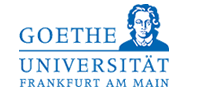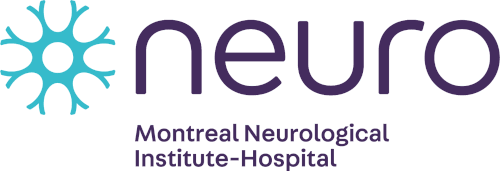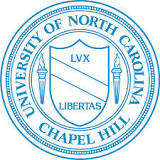 |
 |
 |
 |
 |
 |
Faculty and Industry Participants
| Institutions and Faculty | Industry Collaborators |
|
Institut de Recherches Clinique de Montréal |
AbbVie Inc. |
Institutions and Faculty
Dr. B. Mario Pinto – Our group is studying the nature and origin of carbohydrate mimicry for the purpose of drug and vaccine design. We take our leads from molecular mimicry displayed by Nature. Our goals are the understanding of the molecular mechanisms of recognition that can be used to tailor specific immune responses or inhibit specific enzymatic reactions. The results have implications for the control or treatment of bacterial and viral diseases, diabetes Type 2, and cancer.
Dr. David Vocadlo – A key objective of the laboratory is to create probes of glycan processing enzymes that can be used to evaluate the roles of interesting glycoconjugates in diseases such as cancer and Alzheimer disease. Members of the laboratory work as a team to address new problems in the area of glycobiology and come from different backgrounds including, for example, chemistry, biochemistry, and cell biology. Our group is engaged in the study of: (i) carbohydrate processing enzymes that act on glycoconjugates, (ii) the development of chemical tools to both perturb the action of these enzymes as well as to monitor glycoconjugates, and (iii) the use of these chemical tools to gain new understanding as to how these enzymes and glycoconjugates regulate cellular and organismal physiology.
Dr. Robert Young - Our laboratory undertakes the design and synthesis of small molecule probes to aid in understanding disease processes and to discover novel targets and therapies for treatment. The goals will be to characterize gene family expression in disease states, to discover and validate novel biological targets and to develop proof of concept (POC) molecules to test the benefits/liabilities of intervention at a target. For validated targets we will optimize POC molecules and leads from design or screening through parallel synthesis to discover potential drug candidate molecules.
University of British Columbia
Dr. Raymond Andersen - The research interests involve the isolation and structure elucidation of novel organic metabolites produced by marine organisms. Biosynthetic studies are carried out on the novel metabolites when it is feasible. The structures of the new metabolites are elucidated primarily by spectroscopic analysis. Multipulse 1D and 2D nmr experiments play a pivotal role in the structure elucidation. As a rule, the molecules investigated have to meet one or more of the following criteria: i) they should be of theoretical interest due to the novelty of their biogenesis - for example terpenes with new carbon skeletons, ii) they should display in vitro biological activity which makes them potential leads for the development of pharmaceutical agents and/or iii) they should display biological activities that allow them to play a central role in the biology of the producing organism (i.e. chemical ecology).
Dr. Yvan Guindon - Our laboratory is working on the development of new synthetic methodologies for the elaboration of new stereogenic centers on acyclic substrates. These molecules are considered to be among the most difficult chemical entities to modify diastereoselectively due to the lack of rigidity in their structure. Ultimately, the goal of this research is to derive unique and complementary tools for the synthesis of biologically interesting complex molecules that can be used for elucidating the different mechanisms associated with various pathologies. Our research unit is also interested in the design and synthesis of selective selectin ligands that could serve as therapeutic agents in the control of inflammation and/or cancer. Cellular adhesion phenomena related to selectins are studied in vitro, and new, more sophisticated biophysical methodologies are being developed. Also in progress is a new versatile and convergent approach to the synthesis of nucleoside analogues.
Dr. Steve Hanessian - Synthesis of probes derived from natural products) is a synthetic and medicinal chemist who also worked in industry (at Parke Davis) before joining the Universite de Montreal. His laboratory studies anticancer agents and enzyme inhibitors. His research group counts over 300 alumni many of whom have moved to advanced positions in academia and industry.
- Strategies in the total synthesis of natural products
- Molecular Aspects of Medicinal Chemistry and Drug Design
- Immunochemistry and Drug Targeting
- Glycosidic Linkage in Life Processes
Dr. Mark Lautens - The Lautens group is focused on the investigation and development of novel transition-metal-mediated organic transformations. Some projects include catalyst-controlled asymmetric transformations while others focus on controlled tandem or domino processes. Of particular interest are reactions which can efficiently construct frameworks of pharmaceutical compounds or fragments of biologically-active natural products.
Dr. Andrei Yudin - The main focus of research in the Yudin group is to develop a bridge between basic chemistry research and drug discovery. In addition to significant fundamental discoveries, his lab is making tangible contributions to chemical industry. In 2009, Sigma-Aldrich used his method and created a wide range of reagents now known as the Yudin amino aldehydes. These powerful molecules are being used to solve some of the long-standing problems of complex molecule synthesis. Dr. Yudin and his students have made molecules that effectively mimic secondary structures such as beta turns, beta sheets, and alpha helices in various contexts.
Industry Collaborators
The Industry collaborators will play direct roles by actively participating in the ChemNET trainees’ project teams and serve on the Program Committee. The initial list of industry collaborators includes:
 |
Innovation is the cornerstone of AbbVie’s business as a global biopharmaceutical company. Our focus is on developing medicines that can offer strong clinical performance and, provide measurable patient benefit—particularly in areas where there is significant need—such as hepatitis C, neuroscience, immunology, oncology, chronic kidney disease and women’s health. AbbVie’s approach to scientific innovation builds on an impressive track record of developing breakthrough science. Our scientists discovered and developed two of the first medications to treat HIV infection, helping to change the outlook for many patients impacted by this disease. Our work in immunology has benefited patients with rheumatoid arthritis, psoriasis, Crohn’s disease and other chronic, autoimmune conditions. We continue to advance scientific research across many disease areas. |
 |
The pharmaceutical company Boehringer Ingelheim was founded in 1885 by Albert Boehringer (1861-1939) in Ingelheim am Rhein. The company has since become a global enterprise. As part of research and development activities for innovative drugs, the company focuses primarily on the therapeutic areas of cardiovascular disease, respiratory diseases, diseases of the central nervous system, metabolic diseases, virological diseases and oncology. |
 |
MSD is a global healthcare leader working to help the world be well. MSD is known as Merck & Co., Inc inside the United States and Canada. Through our prescription medicines, vaccines, biologic therapies and animal health products, we work with customers and operate in more than 140 countries to deliver innovative health solutions. We also demonstrate our commitment to increasing access to healthcare through far-reaching policies, programs and partnerships.. |
 |
Janssen, Pharmaceutical Companies of Johnson & Johnson Our mission is to make the most fundamental change in the way diseases are managed. We have a leading portfolio of solutions that can alleviate, contain or cure some of the world's most serious conditions and diseases. We are actively developing treatments for our patients in six important areas of healthcare: • Oncology • Immunology • Neuroscience • Infectious diseases and vaccines • Metabolic and chronic diseases • Women’s Health |
 |
Novartis Institutes for BioMedical Research (NIBR) NIBR is the global pharmaceutical research organization of Novartis. Our research is focused on discovering innovative new drugs that will change the practice of medicine. We have an open and entrepreneurial culture, encouraging collaboration to make effective therapies. Research areas include oncology, developmental & molecular pathways, epigenetics, DMPK and biomarker development. |
 |
We have a leading portfolio of products and medicines that support wellness and prevention, as well as treatment and cures for diseases across a broad range of therapeutic areas; and we have an industry-leading pipeline of promising new products that have the potential to challenge some of the most feared diseases of our time, like Alzheimer's disease and cancer. To ensure we can continue to deliver on our commitments to the patients, customers and shareholders who rely on us, we are focused on improving the way we do business; on operating with transparency in everything we do; and on listening to the views of all of the people involved in health care decisions. Through working in partnership with everyone from patients to health care providers and managed care organizations to world governments and non-governmental organizations, our goal is to ensure that people everywhere have access to innovative treatments and quality health care. |
 |
Takeda Pharmaceutical Company Limited We have a leading portfolio of products and medicines that support wellness and prevention, as well as treatment and cures for diseases across a broad range of therapeutic areas; and we have an industry-leading pipeline of promising new products that have the potential to challenge some of the most feared diseases of our time, like Alzheimer's disease and cancer. To ensure we can continue to deliver on our commitments to the patients, customers and shareholders who rely on us, we are focused on improving the way we do business; on operating with transparency in everything we do; and on listening to the views of all of the people involved in health care decisions. Through working in partnership with everyone from patients to health care providers and managed care organizations to world governments and non-governmental organizations, our goal is to ensure that people everywhere have access to innovative treatments and quality health care. |


